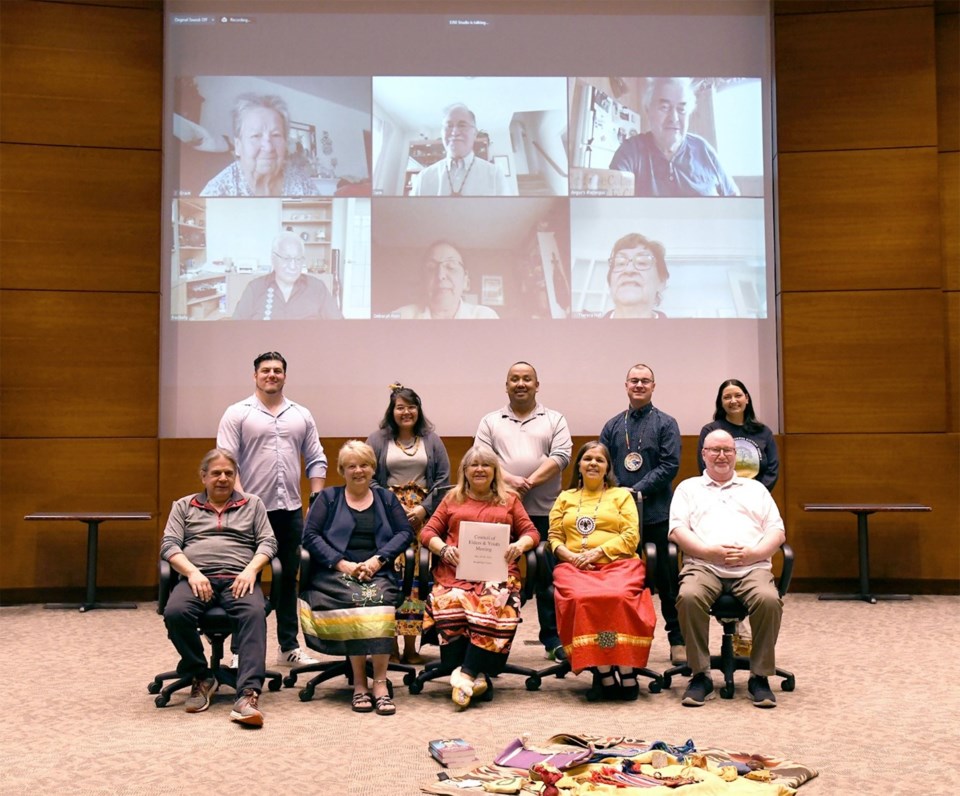ONTARIO – One of the best parts about the used nuclear fuel is the continued efforts by the NWMO to incorporate Indigenous Knowledge practices with consultation from many Indigenous Elders and youth around Canada.
The Council of Elders and Youth is an independent advisory committee that works with the NWMO in applying Indigenous Knowledge and consultation on the deep geological repository to store used nuclear fuel for the long term.
The Council’s mission statement and Declaration of the Keepers of the Land are commitments to provide counsel to the NWMO that will help protect and preserve all creation: air, land, fire, water, plants, medicines, animals, and humankind – guided by the seven universal teachings of love, trust, sharing, honesty, humility, respect, and wisdom.
“We must take care of this nuclear waste now, so it doesn’t burden our future generations. We have to always keep in mind that we need Mother Earth to survive but she does not need us,” said Elder Augustine.
The council is made up of six First Nations Elders and six First Nation youths where one of their many roles is to aid in the decision-making and implementation of Adaptive Phased Management.
“The NWMO does not just have dialogue with us once or twice and say they have successfully consulted with Indigenous peoples. It is not a ‘tick the box’ exercise for them,” said Elder Augustine, Mi'kmaw Elder from Elsipogtog First Nation and member of the Council. “They have been in dialogue with us for twenty years and they take what we say to heart and put it into practice in their work. Many organizations can learn from the NWMO on how to successfully put Reconciliation into practice. It is a journey and the NWMO is on the right path.”
In May, the Council came together for its first in-person three-day gathering since the start of the COVID-19 pandemic in 2020.
On the first day of the meeting, a Traditional Sunrise Ceremony around a sacred fire started the council proceeding followed by Elder-guided sharing of smudge, the sacred blessing of water to emphasize the importance of its protection and place in all Creation, a traditional food offering of blueberries, along with traditional songs, drums, and Pipe ceremony.
The council has been meeting regularly since the start of the pandemic; however, it was virtually. Therefore, the in-person ceremony was a blessing in itself.
After the ceremony, it was down to work. The council talked about ReconcilACTION as part of a pathway forward to honouring First Nations Calls for Action on Truth and Reconciliation, in which in 2019 the NWNO formalized their commitment to the First Nations community with a Reconciliation Policy.
“The Reconciliation Policy is designed to provide a framework to support a body of work that has been underway since the Nuclear Waste Management Organization’s (NWMO) inception in 2002,” the policy reads. “The Council of Elders and Youth have had made significant contributions to the development of NWMO policies. The Council recognizes that the NWMO has taken a leadership role in the private sector to establish progressive policies of importance to First Nation and Métis peoples. The NWMO’s commitment to Reconciliation presents the opportunity to harmonize the key elements of many of our policies into a holistic policy framework as guided by the Council of Elders and Youth.”
“If I talk, I can’t listen,” said Bob Watts, Vice President of Indigenous Relations and Strategic Programs for the NWMO. “The reason for this meeting is to actively listen to the advice, counsel, and guidance that this beautiful Council provides to us. We have been engaging with them since day one and have and continue to learn so much. But we cannot do this without putting into practice what we are taught in a good and honourable way.”
